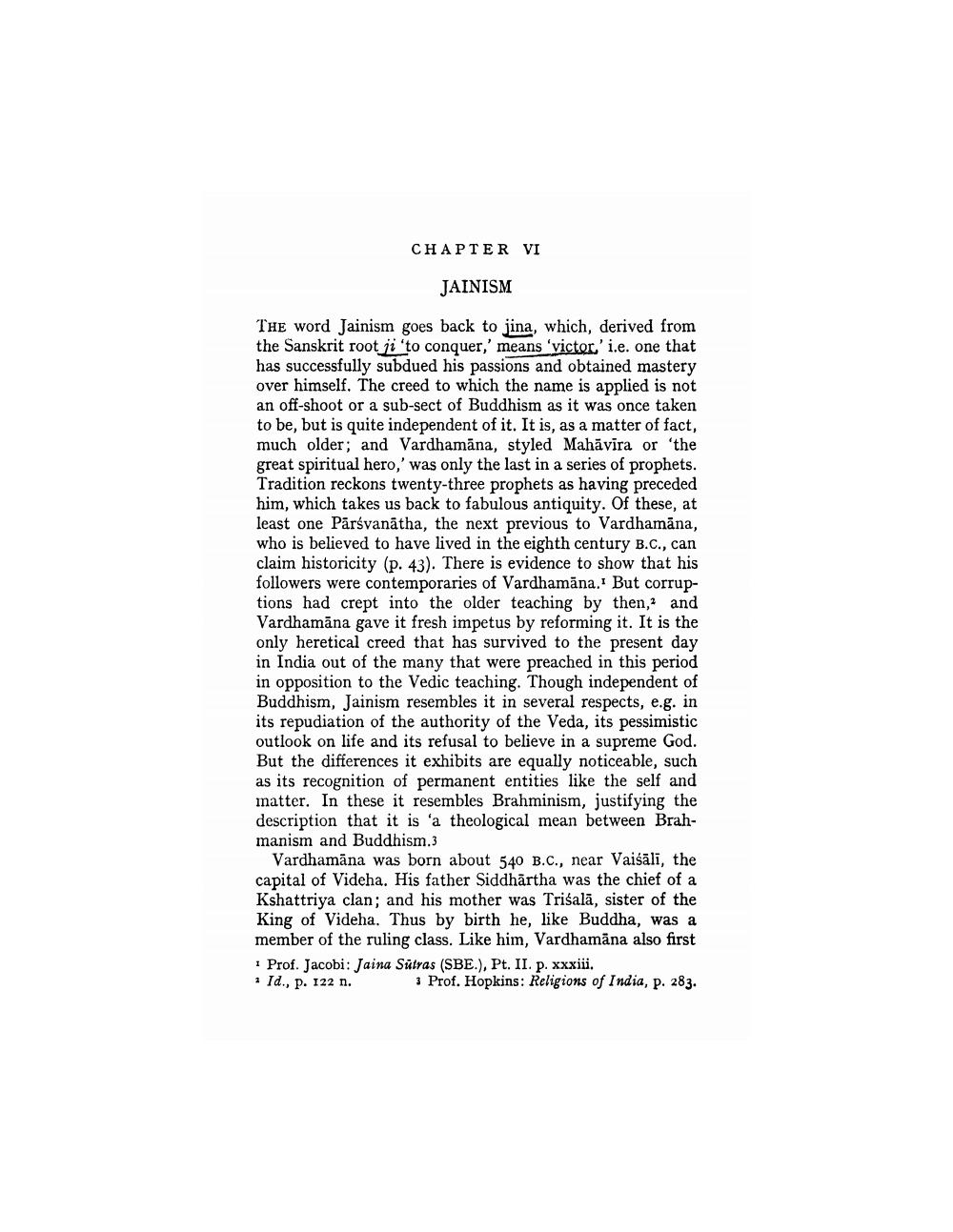________________
CHAPTER VI
JAINISM
THE word Jainism goes back to jina, which, derived from the Sanskrit root ji 'to conquer,' means 'victor.' i.e. one that has successfully subdued his passions and obtained mastery over himself. The creed to which the name is applied is not an off-shoot or a sub-sect of Buddhism as it was once taken to be, but is quite independent of it. It is, as a matter of fact, much older; and Vardhamana, styled Mahavira or 'the great spiritual hero,' was only the last in a series of prophets. Tradition reckons twenty-three prophets as having preceded him, which takes us back to fabulous antiquity. Of these, at least one Pārsvanatha, the next previous to Vardhamana, who is believed to have lived in the eighth century B.C., can claim historicity (p. 43). There is evidence to show that his followers were contemporaries of Vardhamana.' But corruptions had crept into the older teaching by then, and Vardhamana gave it fresh impetus by reforming it. It is the only heretical creed that has survived to the present day in India out of the many that were preached in this period in opposition to the Vedic teaching. Though independent of Buddhism, Jainism resembles it in several respects, e.g. in its repudiation of the authority of the Veda, its pessimistic outlook on life and its refusal to believe in a supreme God. But the differences it exhibits are equally noticeable, such as its recognition of permanent entities like the self and matter. In these it resembles Brahminism, justifying the description that it is 'a theological mean between Brahmanism and Buddhism.3
Vardhamana was born about 540 B.C., near Vaiśāli, the capital of Videha. His father Siddhartha was the chief of a Kshattriya clan; and his mother was Trisala, sister of the King of Videha. Thus by birth he, like Buddha, was a member of the ruling class. Like him, Vardhamana also first
Prof. Jacobi: Jaina Sutras (SBE.), Pt. II. p. xxxiii. a Id., p. 122 n.
3 Prof. Hopkins: Religions of India, p. 283.




